<< Previous | Displaying results 526-550 of 6769 for "" | Next >>
Gideon was known affectionately as "Gi" by his family and friends. His parents were descended from the Huguenots, French Protestants who came to the Netherlands in the 16th and 17th centuries. Gi had two brothers and two sisters, and his father worked in the insurance business. 1933-39: Gi had a large circle of friends, both Christians and Jews, and after school they all liked to get together. He and his friends enjoyed taking bike trips, having parties, and playing records. In the mid-1930s his parents…
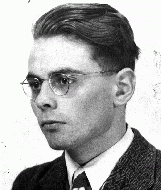
Fred was born to a Jewish family in the German capital. Berlin's Jewish community was large--approximately 170,000 by 1933--and the city was the seat of most of Germany's national Jewish organizations. Fred's family owned a successful clothing factory. He attended a Jewish public school in Berlin. 1933-39: In 1938 the Germans began deporting Polish citizens. Both Fred's parents were Polish by birth, but only his father and brother were sent to Poland. Fred and his mother remained in Berlin until their…
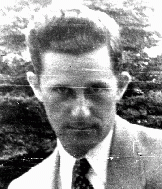
Born in the town of Volkovysk when it was part of Russia, David was the son of middle-class Jewish parents. When the family's life was disrupted by World War I and the Russian Revolution of 1917, they moved to Borisov and Kiev before finally settling in the Polish city of Bialystok. After completing secondary school in 1925, David studied medicine at Stefan Bathory University in Vilna. 1933-39: After medical school David served one year in the Polish army. Then he practiced obstetrics at a beautiful…
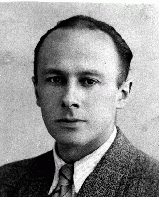
The third of eight children, Jehuda was born in the predominantly Jewish town of Wodzislaw, about 45 miles north of Krakow. Jehuda's father was a mechanic and locksmith, and had trained Jehuda and his brothers in the trade. Jehuda eventually opened his own shop in the nearby town of Miechow. He had eight children--five sons and three daughters--by two marriages. 1933-39: All this summer Jehuda has been glued to the radio, as the number of skirmishes between the German and Polish border guards have…
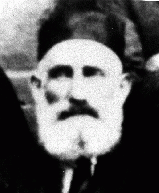
Naftali was one of six children born to a Jewish family in the small Lithuanian village of Karchai. When he was a young boy, a tutor would come to Karchai to teach the Jewish children in the village. Naftali later began public school in Janova and after graduating he went to an agricultural school. In 1929 Naftali moved to Siauliai, where he worked grading beets in a sugar beet factory. 1933-39: In Siauliai, Naftali lived with his sister, Sara, and her family who ran a dairy store. Naftali was a religious…
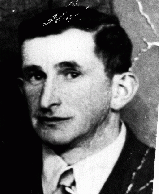
One of six children, Willem grew up in Amsterdam where his parents were theater costume designers. When Willem was 17, he fought with his parents about his homosexuality. He left home and severed contact with his family. He began writing and painting, and in the 1920s was commissioned to do a mural for the Rotterdam town hall. In 1932 he moved to the countryside near Apeldoorn. 1933-39: When he was 38, Willem met Jan Tijssen, the son of a greengrocer, and they lived together for the next seven years.…
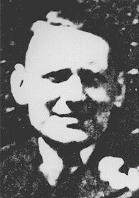
The oldest of eight children, Jolan grew up in a religious Jewish family. She was usually known by her Yiddish nickname, Cipi. After Jolan was born, her parents moved the family to Kisvarda, a town in northeastern Hungary. There she grew up with her four sisters and one surviving brother. Jolan had finished her schooling by 1933. 1933-39: Hitler was popular in Kisvarda. Jolan's mother wanted the family to leave Hungary before the situation worsened, but her father, who had been to the United States…
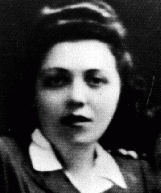
Also known by her Yiddish name, Tobe, Terez was raised in a religious Jewish family. Her father and two brothers were rabbis. Though Terez was a promising student, she didn't pursue an advanced education because her traditional family wanted her to marry. So Terez married Menyhert Katz and moved to the town of Kisvarda [in Hungary]. There, she raised five daughters and one son; two other sons died. 1933-39: Terez's twin sons died when they were 8 months old, and she was convinced that their death was a…
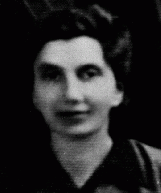
Izabella was one of eight children raised in a religious Jewish family in the small town of Kisvarda in northeastern Hungary. Every Friday Izabella and her brother and four younger sisters went to the library to borrow the maximum number of books for their mother. Izabella attended public schools and longed to move to a big city. 1933-39: Antisemitism was prevalent. Izabella can't count the number of times she was called "smelly Jew." Her family cringed at "Heil Hitler" speeches from Germany on the radio…
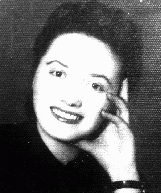
Leon was born to Jewish parents living near Tarnopol, then part of the Austro-Hungarian empire. During World War I, he was an officer in the Austrian army. Following his enlistment, Leon attended medical school in Vienna. After graduating in 1923, he opened a general medicine practice in Kolbuszowa, a town in south central Poland. He was one of the town's two physicians. 1933-39: Leon had never been active in Jewish affairs, but when the Germans deported Jews from their country in 1938, he felt compelled…
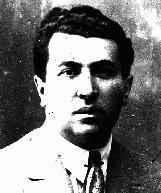
Susanne was the younger of two daughters born to Jewish parents in the German capital of Berlin. Her father was a successful lawyer. Known affectionately as Sanne, Susanne liked to play with her sister on the veranda of her home and enjoyed visiting the Berlin Zoo and park with her family. 1933-39: After the Nazis came to power in January 1933, it became illegal for Jewish lawyers to have non-Jewish clients. When Susanne was 4, her father's law practice closed down and the Ledermanns moved to the…
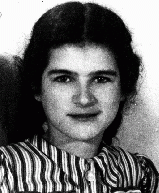
The only child of a cosmopolitan Hungarian Jewish couple, Eva grew up in a city on the border between Romania and Hungary. Nearly one-fifth of the city's population was Jewish. Eva was a small child when her parents, Agi and Bela, divorced, and she went to live with her grandparents. 1933-39: After the divorce, Eva saw little of her mother, who remarried and moved to Budapest. She also rarely saw her father, who lived on the other side of the city. Eva lived with her grandmother and grandfather near the…
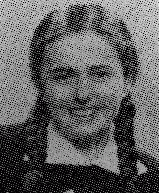
Franz was raised in a town in eastern Germany. The son of Jewish parents, he earned a law degree from Breslau University and a doctorate of jurisprudence from Geneva University in Switzerland. At the age of 35 he married Ilse Luise Citroen, a woman of Dutch-Jewish ancestry. The couple settled in Berlin where Franz had a successful law practice. The Ledermanns had two daughters. 1933-39: The Nazis came to power in January 1933. Ilse's Dutch relatives encouraged the Ledermanns to immigrate to the…
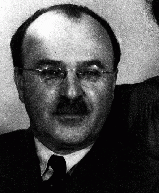
Ilse was one of four children born to a Dutch-Jewish father and a German-Jewish mother. In 1924 she married Franz Ledermann, a successful lawyer who was 15 years her senior. The couple made their home in Berlin, where they raised two daughters, Barbara and Susanne. 1933-39: The Nazis came to power in January 1933. While the Ledermanns were vacationing in Holland that summer, Ilse's Dutch cousin advised her not to return to Germany. Franz was reluctant to remain in Holland without a job, but when the Nazis…
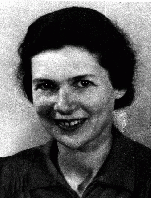
Gert was born to a Jewish family settled in northeast Berlin, known as one of the city's "red" (largely communist) districts. They lived in a large tenement building. Gert's parents were from the eastern part of Germany, which had been ceded to Poland in 1919. His father, proud of his Iron Cross, Second Class, earned in World War I, was active in an association of Jewish veterans. 1933-39: After Hitler came to power, a neighbor told Gert's mother that they couldn't greet each other on the street…
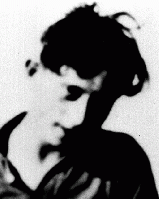
Onti, the youngest of five sons, was born to religious Jewish parents in northern Transylvania, a region of Romania that had belonged to Hungary until 1918. Onti's family usually called him Usher, which was the diminutive of his Yiddish name, Anschel. As a little boy, he liked collecting figurines. Though Onti grew up in a Hungarian-speaking home, he attended Romanian public schools. 1933-39: At age 13 Onti quit school to help make ends meet. He wanted to become a watchmaker, but he settled on working as…
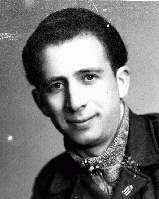
Felicia grew up in a Jewish family living in a predominantly Catholic neighborhood in the large, industrial city of Lodz. Her father's side of the family had lived in Poland for 400 years. He was the principal of a Jewish secondary school for boys. Known affectionately by family and friends as Lusia, Felicia attended a bilingual Jewish school in which both Hebraic and Polish subjects were taught. 1933-39: When Felicia was 12 she heard a lot of bad things about the Nazis. A Polish-born German Jewish…
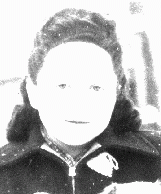
The oldest of eight children, Josel was born in Miechow, a small town in south central Poland. His father was a machinist and locksmith. As a boy, Josel spent long days learning Hebrew in the Jewish school and taking general subjects at the public school. He was 13 years old when he left school to work in his father's shop. 1933-39: Josel met his wife, Esther, through a matchmaker, and they settled in nearby Dzialoszyce, a town with a Jewish community of about 7,000, and a beautiful synagogue that had…
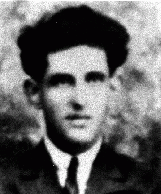
Frieda was the fourth of five children born to strict Catholic parents. She had one brother and three sisters. Frieda grew up on a large farm near the village of Michaelnbach in northern Austria. The farm had cattle, horses, pigs and poultry, and the children worked long hours helping their parents on the farm. At age 12, Frieda left school to work full time on the farm. 1933-39: Germany annexed Austria in March 1938. When war broke out in September 1939, Frieda's brother was drafted into the German army.…
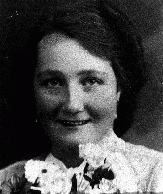
Iosif was the second of four boys born to a Jewish family in the southern Ukrainian port of Odessa, a city with the largest Jewish community in the Soviet Union before World War II. Iosif's father worked as a hat maker, while his mother raised the family. 1933-39: In 1936 Iosif joined the Red Army and was trained to drive a tank. After Germany invaded Poland on September 1, 1939, the Soviet Union took advantage of its nonaggression pact with the Germans to claim Finnish territory. The Finns resisted them…
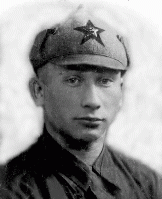
Morris was the youngest of six children born to a religious Jewish family in Przedborz, a south central Polish town with a large Jewish population. Morris' family owned a business that supplied nearby factories with raw metal materials. 1933-39: When Germany invaded Poland in early September 1939 Morris and his family fled to the woods. They returned a few days later; most of the town had been burned down. The Nazis set up a ghetto and ordered everyone age 13 to 50 to report for work details. His family…
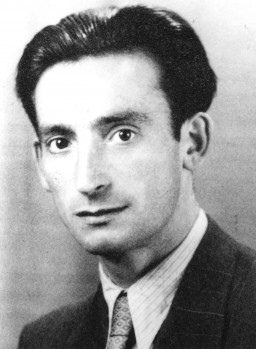
Semyon was born to a Jewish family in the small village of Komarovo in Polish Ukraine. His parents were farmers and tended their own fields while managing the estate of a Polish landowner who lived in Warsaw. Of the estimated 200 families living in Komarovo, only five were Jewish. 1933-39: Since there was no Jewish school in their town, Semyon's parents sent him to the nearby city of Sarny to study. He finished school in 1938 and returned to Komarovo to help his parents with their farm. But in September…
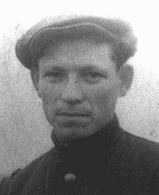
Hetty was the only child of a middle-class secular Jewish family. Hetty's parents were Sephardic, the descendants of Jews who had been expelled from Spain in 1492. The family lived in an apartment above her father's clothing business. Hetty's grandparents and other relatives lived nearby. 1933-39: Hetty enjoyed growing up in the Netherlands. Her Jewish neighborhood was in the older part of Amsterdam, in the city center. When she was 6 years old, she began attending a public school. Everywhere in Amsterdam…
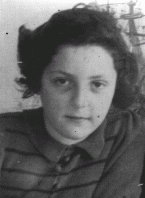
The second oldest of six children, Emma was raised by observant Jewish parents in a small town in southwestern Germany and they settled in the industrial city of Mannheim after World War I. There she had two children, a son in 1924, and a daughter in 1930. Emma helped her husband in his business. 1933-39: After the Nazis came to power, Emma's husband lost his business. Her sister Linnchen immigrated to South Africa, and the Nazis deported her brother Arthur to Dachau. When the Nazis burned down the local…
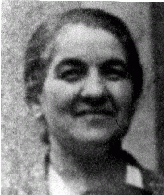
The second oldest of five children, Robert was raised by Jewish parents in a suburb of Mannheim. He was wounded while serving in the German army during World War I. Married after the war and making his home in the industrial city of Mannheim, Robert and his wife Emma raised two children, while he made a living as an interior decorator. 1933-39: The Nazis came to power in 1933; Robert's children were forced out of public school and he lost his business. When the Nazis burned down the local synagogue and…
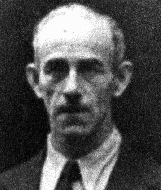
We would like to thank Crown Family Philanthropies, Abe and Ida Cooper Foundation, the Claims Conference, EVZ, and BMF for supporting the ongoing work to create content and resources for the Holocaust Encyclopedia. View the list of donor acknowledgement.